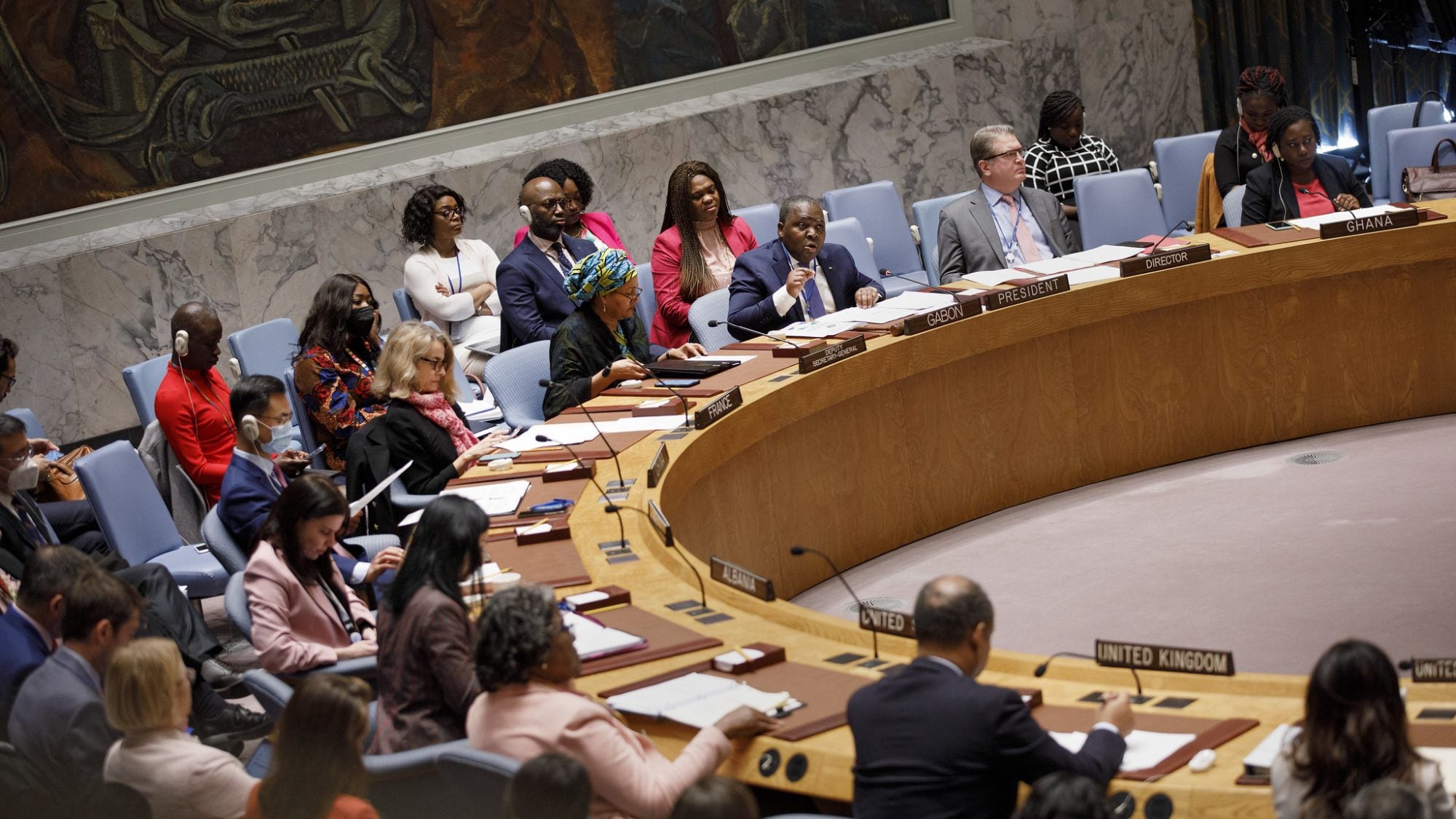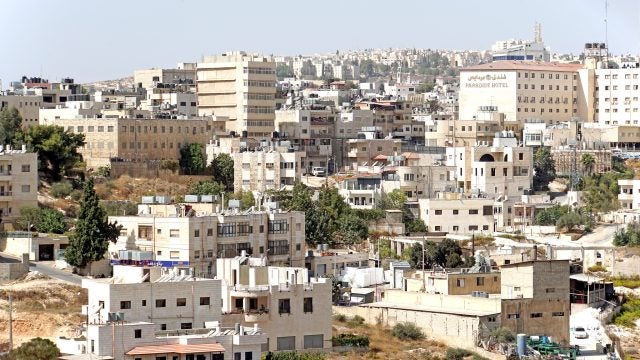
Title: Reflecting on 25 Years of Women, Peace, and Security
Twenty-five years ago, the United Nations Security Council adopted Resolution 1325, establishing a framework that underpins the Women, Peace, and Security (WPS) Agenda. The Resolution recognized both the disproportionate impact of conflict on women and the critical contributions they make to establishing peace and stability. It called on member states to increase women’s participation and incorporate gender perspectives across all peace and security efforts. This anniversary comes at a time of immense upheaval and uncertainty around the globe. War has become the norm in countries from Ukraine to Sudan. Reports of violence against women in conflict zones are on the rise, while democracy and women’s rights face growing political backlash worldwide. These challenges highlight the persistent gap between the Resolution’s aspirations and its implementation—and make it all the more urgent to revisit its lessons. Despite slow and uneven progress, Resolution 1325 remains a vital framework for transforming global peace and security. Realizing its full potential will require renewed political commitment, stronger investment in locally driven implementation, and the integration of the WPS agenda into responses to emerging global threats such as climate change, democratic backsliding, and rising authoritarianism.
Origins of the Resolution
When the UN Security Council unanimously adopted the four-page Resolution 1325 in 2000, it built on growing acknowledgement of women’s roles in economic development, politics, peacebuilding, and international human rights. A series of UN conferences, beginning with International Women’s Year in 1975 and culminating in the 1995 World Conference on Women in Beijing, made the case that without the equal participation of women, global goals for development, peace, and equality would not be achieved.
Resolution 1325 also recognized the evolving nature of conflict in the 21st century. In an age of civil wars and violent extremism, women were increasingly bearing the brunt of violence, as both direct targets and secondary victims of displacement, economic deprivation, and social collapse. In 1996, the International Criminal Tribunal for the former Yugoslavia uncovered systemic atrocities targeting women, and survivors’ courageous testimony raised awareness about women’s experiences of war. With strong support from civil society and leadership from countries such as Namibia, Bangladesh, Jamaica, and Canada, Resolution 1325 enshrined lessons that were becoming clear from experience: women face differential burdens in conflict, and their participation makes a tangible difference in ending wars and rebuilding societies.
Even before Resolution 1325, women in conflict zones across the globe found creative ways to force their way into peace negotiations and brought unique contributions. In Guatemala, a diverse coalition of women’s NGOs and activists put their differences aside to agree to a collective platform. Their advocacy ensured the 1996 peace agreement included provisions addressing discrimination against Indigenous communities, gender equality at work and at home, and greater access to education. In Northern Ireland, a cross-community group of women created their own political party for the explicit purpose of ensuring women had a voice during the 1998 Good Friday Negotiations. They succeeded in getting overlooked issues like victims’ rights, integrated education, and women’s political participation into the final agreement’s text. These kinds of “bread and butter” issues looked beyond the immediate end of war, focusing instead on building a secure and equitable future.
An Indisputable Body of Evidence
Since the adoption of Resolution 1325, the body of evidence linking women’s participation to more durable and inclusive outcomes has only grown. Research at the Georgetown Institute for Women, Peace & Security (GIWPS) shows in cases around the world that women build trust across communities, ensure the needs of marginalized groups are represented, act as honest brokers, and successfully catalyze public support for peace agreements once they are signed. The quantitative record agrees. One analysis of post-Cold War peace processes found that when women had direct influence in negotiations, there was a higher chance that an agreement would be reached. Another study shows that when women participate in peace negotiations, the resulting agreements are more durable and more likely to be implemented. At a time when more than half of all peace agreements fail within five years, these findings point to a pathway for significantly improving global stability.
Having women at the negotiating table means a greater likelihood of including provisions for women’s rights—including land rights for women, political quotas, or protections from sexual violence—which not only help women but also improve a country’s prospects for stability. Research, including GIWPS’ Women, Peace & Security Index, shows that the security of women is one of the most reliable indicators of peaceful states.
The data is clear. Including women is not only a matter of human rights and democracy, but it also leads to longer-lasting and more responsive peace agreements. These findings have helped convince many policymakers and practitioners around the world that supporting WPS is not just the right thing to do, but the smart thing to do. In the United States, for instance, the agenda has enjoyed bipartisan support, and efforts to integrate women’s participation and perspectives into defense, diplomacy, and development have cut across administrations. In 2011, during the Obama Administration, the United States joined dozens of countries in drafting a National Action Plan for Women, Peace, and Security, recognizing the benefits of women’s inclusion in advancing American national security. In 2017, Congress passed the “Women, Peace, and Security Act,” the first-ever legislation enshrining WPS into law, with bipartisan backing in both houses. And in 2019, the first Trump Administration released the US Strategy on Women, Peace, and Security, directing federal agencies to strengthen implementation and collect comprehensive data on WPS.
However, this consensus is facing worrying backlash. In April of this year, Secretary of Defense Hegseth announced on social media that he would “end” WPS. While it remains unclear what this will mean for the statutory requirements of the Women, Peace, and Security Act of 2017, military leaders warned against rolling back the WPS program, which they called “a low-cost, high-yield uncontested advantage over our competitors.”
Accelerating Progress
Even outside the United States, progress toward full participation has been incremental at best. The percentage of women involved in peace negotiations as signatories and negotiators remains stalled at less than 20 percent. This summer, the UN warned that verified reports of sexual violence in conflict zones had spiked 25% in the past year of reporting. In 2025, we face a profoundly difficult moment for peace and security, and harnessing the potential of women’s participation is more critical than ever. From Yemen and Ethiopia to Myanmar, Ukraine, and Gaza, security is out of reach for an increasing percentage of the world population. Women’s inclusion is a key factor that can mean the difference between a broken agreement and a longer-lasting peace that delivers for all.
The question now is how to accelerate the slow but meaningful progress of the past quarter-century and finally close the gap between good intentions and the unfinished agenda. Thankfully, the international community is not starting from scratch but building on 25 years of experience. WPS practitioners and scholars know, for instance, that women often lead grassroots mediation and conflict resolution efforts, brokering peace and building resilience at the community level. Special envoys and lead negotiators can link these women’s on-the-ground experience to official negotiations by ensuring their meaningful participation in peace talks, either through direct representation or creative mechanisms like advisory boards or local women’s situation rooms. Indeed, there exist networks of women mediators in almost every region, training women to be ready for peacebuilding work.
There is also abundant policy guidance, developed over decades of practice. Many countries, including the United States, have drafted national action plans and policy directives, drawing on long consultation processes and reflecting broad consensus between policymakers, practitioners, and peacebuilders. These documents provide valuable road maps, but they must be sufficiently resourced in order to be fully implemented. Too often, action plans remain centralized in capital cities and disconnected from the communities most affected by conflict. Donors and partner governments can help fill the gap, providing budgets and capacity building to localize national action plan frameworks.
Finally, the WPS community must reinforce the connections between the WPS agenda and other emerging challenges. For instance, research points to clear links between gender and climate security. And though women are often the most vulnerable to climate-induced displacement, food instability, and environmental degradation, they are underrepresented in decision-making about climate change and its effects. Likewise, rising authoritarianism and attacks on democracy often go hand in hand with attacks on women’s rights. Supporting women human rights activists and women’s NGOs is foundational to the successful defense of democratic institutions, the rule of law, and long-term stability. The role of women in peace and security can no longer be consigned to the periphery of these crises. Comprehensive security—including the protection of human rights, advancement of economic opportunity, and successful conflict resolution and recovery—relies on it.
An inclusive approach to peace and security has never been more urgent than it is today. The most meaningful way to celebrate the 25th anniversary of Resolution 1325 is by reaffirming its ambitious agenda and turning commitment into concrete action.
…
Ambassador Melanne Verveer serves as Executive Director of GIWPS and was the first US Ambassador-at-Large for Global Women’s Issues.
Dr. Rebecca Turkington is a postdoctoral fellow on the Hillary Rodham Clinton Oral History Project at GIWPS.
Image Credit: UN Women, CC BY-NC-ND 2.0, via Flickr
Recommended Articles

This article explores how the Palestinian crisis and the death of the two-state solution endangers the Hashemite Kingdom of Jordan. It illuminates the complicated relationship between Jordan, Israel, and Palestine…

This article explores the uncertain future of Arctic governance amid shifting global geopolitics. It argues that whether Washington and Moscow opt for confrontation or cooperation, multilateralism in the Arctic…

When we analyze conflicts in the Middle East, we are not analyzing conflicts with isolated impacts but risks for global energy security. Recent conflicts in the Middle East have highlighted…